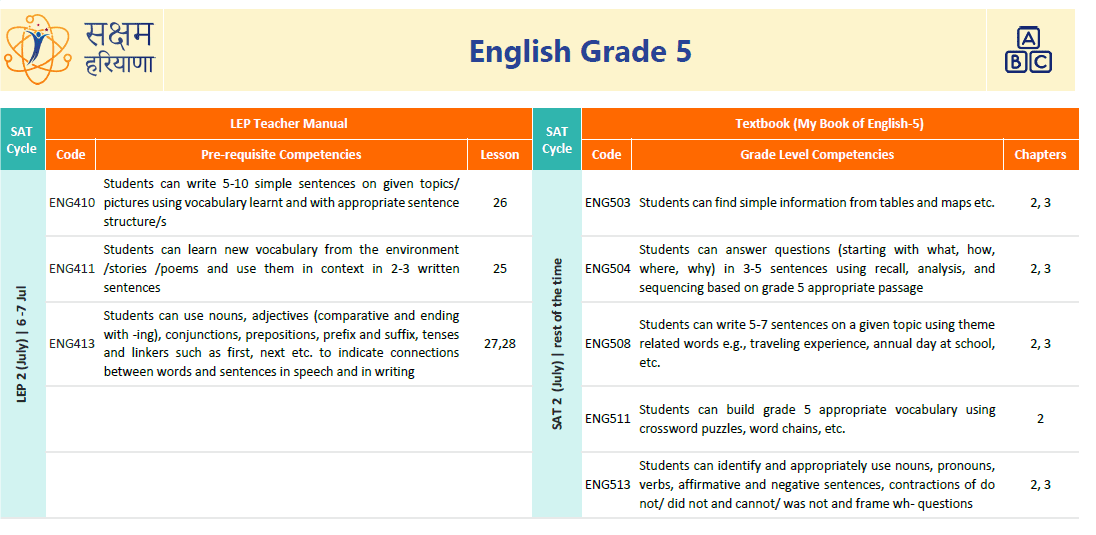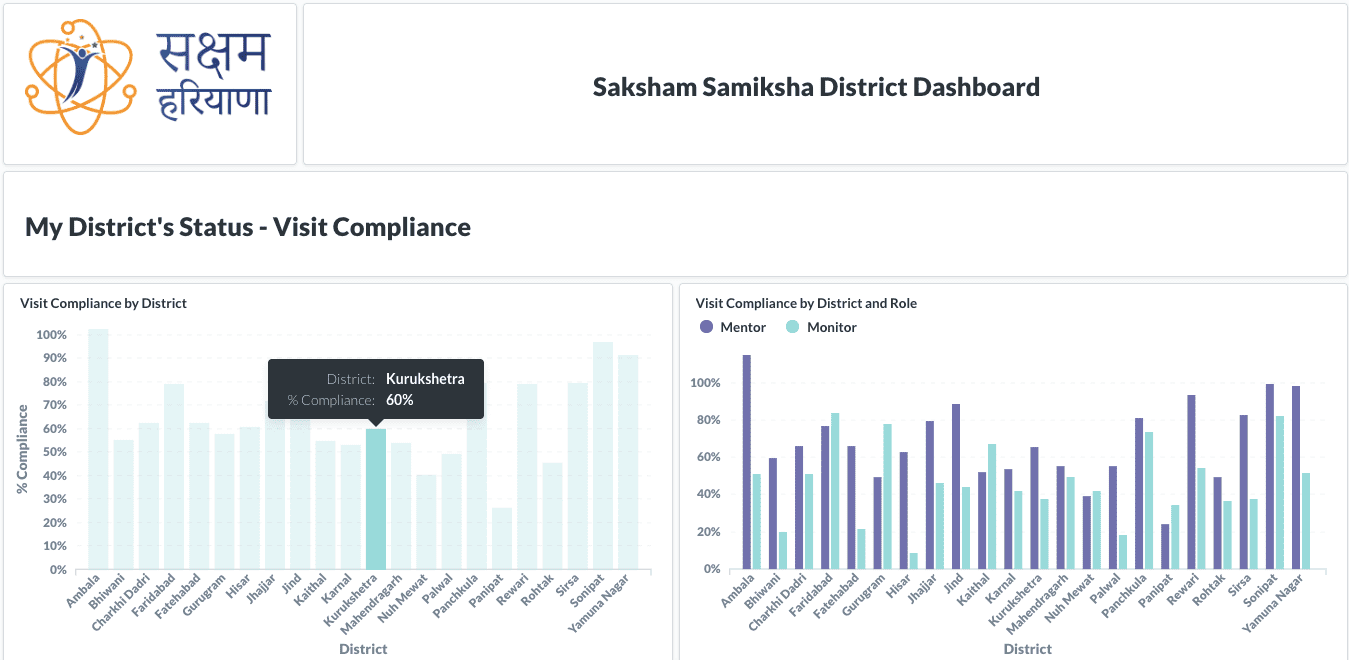The ASER 2018 report states that 79% of children in grade III cannot do basic subtraction and 75% of grade III students cannot read at grade level. Further, in grade VIII more than half the children are struggling with division and only 72% students can read grade II text. As students progress across grades without grasping fundamental concepts from previous grades and the curriculum becomes more rigorous, these learning gaps only keep widening.
In the last decade, India has made significant progress towards universalization of education, improving access to school education and teacher-pupil ratio. However, poor educational outcomes still remain a big challenge. In this context, it is of utmost importance that our government school system addresses the issue of lakhs of students progressing through grades without understanding the course material appropriate to their grade-level.
In the long term, strengthening the quality of foundational learning will be key to fixing learning gaps, however, something has to be done in the short term for the students who have already progressed through multiple grades but are struggling to understand the content of the grade they are in. Structured remedial teaching is one intervention that can give students a fair chance to achieve grade appropriate learning level.
In 2015, the Government of Haryana launched a remediation programme called the Learning Enhancement Program (LEP) in 3,000 schools in the state with the objective of teaching students of classes 2 to 5 foundational and critical competencies of previous grades. Over the last 4 years, this programme scaled to all 8,000+ primary schools in Haryana and continues to run successfully. Till now, LEP was only being implemented in grades 2 to 5, but this year it will also be rolled out in grades 6 to 8.
Learning from the experience of Haryana, there are four key elements that can make remedial intervention a success:
- Modifying assessments to test for conceptual understanding
The Government of Haryana modified their state assessments to include 30% conceptual questions including questions from LEP. Further, in 2017, they introduced a third-party assessment called Saksham Ghoshna, which tests for only conceptual understanding by asking competency-based questions both from previous grades and the current grade. If 80% or more students in a block meet the cut off set by the third-party, the block is declared Saksham or grade-level competent. Both these initiaitves motivate teachers to focus on conceptual learning enabled by LEP.
Until 2018, only Hindi and Math were tested for grades 3, 5, and 7 but starting in 2019, all grades from 3 to 8 are being tested for all subjects except English. The effectiveness of remedial classes is evident in student performance. The February 2020 Saksham Ghoshna exam results showed significant improvement in student learning levels of primary grades as compared to secondary grades across all 119 blocks in the state. In grade 3, 117 blocks have been declared Saksham, whereas in grade 4, 116 blocks have achieved the coveted Saksham status. This is a significant jump from September 2019 (when the previous Ghoshna assessment was held), when then numbers were 35 and 55 blocks, respectively. In grade 5, 93 blocks were declared Saksham as compared to 28 blocks in September 2019.
- Fixing time for remediation
There are approximately 150-170 academic days in a school after removing all holidays and events. Under RTE, the prescribed benchmark is 220 academic days. This means, that a teacher is already scrambling to finish the syllabus in the limited time she has. If in addition to this, she is also asked to conduct remedial classes, how will she find time for it?
To mitigate this challenge, the state introduced an LEP hour at the start of the school day to enable teachers to find time for remediation. Once this timing was institutionalized, teachers started seeing it as a part of the daily routine instead of an additional responsibility. Starting this year, the state has introduced an LEP week, which is to be conducted every two months, to facilitate concentrated remedial teaching.
- Providing material for remediation
While it may seem intuitive for a teacher to recognize learning gaps in students as well as know how to fix it—it is not. With each passing year and more complex syllabus, teachers struggle to prioritize what needs to be re-taught from previous grades to ensure all students come up to speed with the course material taught in the grade they are in. Therefore, the teachers needs support in the form of teaching- learning material that helps in remediation with clear connection to the current grade’s syllabus. This should include the list of most important competencies from previous grades that a teacher must focus on for a student to understand the current grade’s syllabus, and material to teach these competencies.
To this end, in Haryana, Saksham Talika and LEP material were introduced with the aim to support teacher in remedial teaching.
Saksham Talika is the competency framework that lists both competencies from previous grades which are important to lay the foundation for at-grade learning, and grade-level competencies mapped to the current syllabus.
LEP books with lesson plans and student worksheets have been provided to teachers to teach the competencies given in the Talika. The lesson plans are activity-based and enable teachers to incorporate innovative teaching methods instead of following the traditional modes of teaching.
- Set structure for accountability
It is difficult to track progress of any intervention without a proper review system that holds everyone accountable to deliver the desired results.
In Haryana, a system for mentoring and monitoring is in place to both support teachers in improving their pedagogical approach in classroom but also to report compliance. There are 2000+ mentors and monitors in Haryana, each of whom visit 8-10 classrooms every month. Through their visits they ensure compliance and quality of teaching of both remedial and regular classes. They support teachers by giving them feedback and sharing best practices from other classrooms. After the visit they record their observations on an app for both LEP and the regular classroom teach, data from which is available for public viewing on a dashboard. District and block education officers, sub-divisional magistrates, visit this dashboard regularly. This data is discussed in the different reviews at block and district level to decide on relevant interventions to improve quality of teaching.
To improve educational outcomes, focus on quality of teaching is inevitable. This becomes most important in the first few years of schooling because as a child progresses through grades, the learning gap will only increase, making it impossible for her to cope. So, while in the long term, the state should carry out interventions to improve foundational learning, in the short term, a structured remediation programme like LEP in Haryana can enable more students to catch up with grade-level curriculum.


